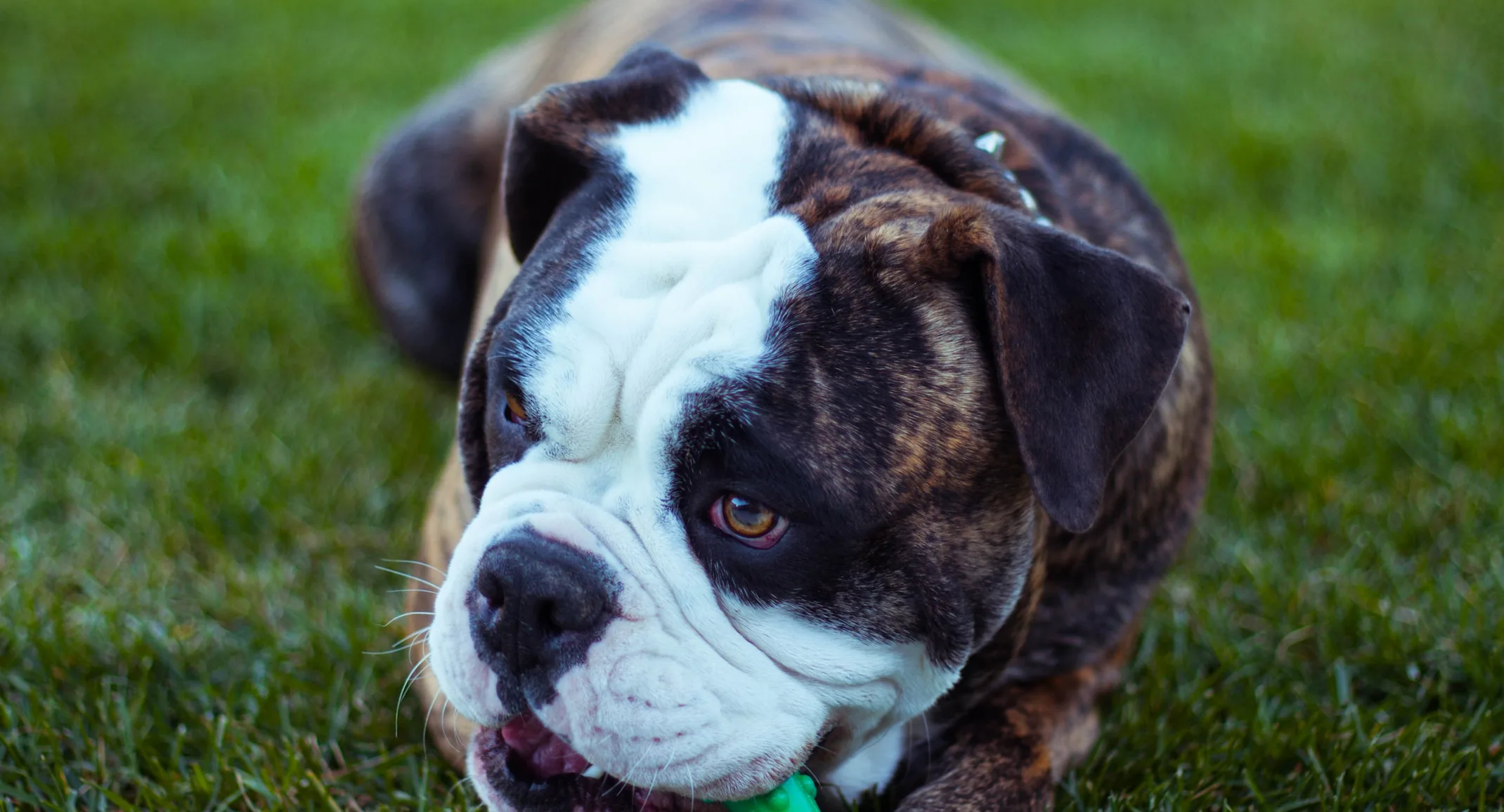Ask The Trainer: Help! My Dog Chews Everything!
Ask The Trainer

Answer: Fear not, Bill! Many new dog owners struggle with chew. So, trust me when I say, you are not alone. But, you’re in luck, chewing is a fairly common problem with a fairly easy fix! However, when it comes to fixing any issue, you have to find the root of the problem first. The root or reason for your dog’s chewing problem can be as simple as age, boredom and incomplete house training.
If your dog is in the range of about eight weeks to five months, then the culprit for most of the chewing is nothing more than a little teething. Teething is the natural process of young pups attempting to massage their gums and get their teeth to break through the skin. Puppies will usually chew on textured material during this time to try and massage their gums.
If your dog is between the ages of 6 months to 18 months and clearly not teething anymore, then it is possible that they are chewing to strengthen their jaw muscles and their teeth. During this time in your pups life, it is not uncommon to catch them chewing on stronger, more durable surfaces such as wood, hard plastics (like the remote), leather, and sometimes even metal, anything strong enough to really sink their brand new teeth into.
If your dog is definitely not dealing with any age-related chewing then your dog could definitely just be dealing with a bit of boredom. During the developmental stages of your dog’s life, it’s important for them to learn what the appropriate things to chew on are. If they don’t, then they never learn to discriminate bones and chew toys from shoes and couches. So, when your dog gets bored, they’ll chew on whatever they can find. Lucky for you, if your dog has missed this developmental mark, there is a way around it or even a “fix”. Proper conditioning and chew scheduling can be effective for any dog no matter how old.
If your dog is no longer a puppy and is well educated on what you want them to chew on then your issue may just be that your dog has too much freedom and not enough house breaking. Contrary to popular belief, housebreaking includes much more than potty training. What housebreaking is, at its core, is teaching your pup what is and what is not acceptable to do in the house regardless of who’s looking. If your pup is not properly housebroken, they are much more inclined to do inside what they do outside. From chewing, digging, and stealing, to pooping and barking. All of these behaviors indoors are products of incomplete housebreaking or lack thereof.
Perhaps you find that your dog is chewing on more specific things like wall trim, table legs, or anything that you own. As random as some of these things may seem, they all have reasons for being appealing to your pup. Your dog is chewing on your wall trim and table legs simply because they’re made out of wood. Wood is enjoyable for dogs for a couple of reasons. It’s easy to chew and it has an earthy aroma. Dogs would rather have a bone but, if they cant, wood will have to do.
If your dog is stealing some of your personal items, whether it be your socks, your shoes, or anything you’ve touched, the reason is very simple. It’s yours. Dogs with this habit tend to live with the mantra ” If it’s good enough for my owner then it must be good enough for me”.
Now that we’ve hopefully figured out the root of your dog’s chewing problem, we can start talking about how to fix it.
We’ll start with chew deterrent spray. The reason it just doesn’t seem to be cutting it when it comes to solving your chewing problem is simple… How dog’s learn. What makes dogs stay away from certain things? Negative associations. The chew-deterrent isn’t working because your dog doesn’t have a negative association with the spray. Unfortunately, all it’s doing is changing the smell of your house.
Dogs, like humans, have taste receptors for sweet, salty, bitter, and sour and chew deterrent sprays are designed around this fact, to make sure that they taste awful to your dog. When you first start using a deterrent spray, it’s important to take the time to develop your dog’s connection to the smell of the deterrent to the awful taste of the deterrent. Developing this connection is simple. Simply apply the deterrent to a cotton ball and let your dog taste it. If your dog finds this taste unpleasant, he may shake his head, drool, or retch. He may sniff the cotton ball again but, it is very unlikely that he will pick it up again. After this connection has been made in your dog’s mind, the deterrent should be more effective.
The fix is probably more simple than you’d think. No spray or deterrent required. All you need is some bones, chew toys and a schedule/ Getting your pup addicted to a chew toy is pretty simple. All it takes is getting their food and favorite treats involved. The best way to kick-start your dog’s obsession with his chew toy is to start feeding him from it. This will teach your dog that any time they touch their chew toy, food falls out. This will begin his genuine interest in the chew toy. Once it is very clear that your dog is interested in it, we can start making the chew game a bit harder. We can start putting peanut butter, larger treats, or many other delicious treats that make the game a bit harder. All of this turns the chew toy into a fun game that your dog obsesses over.
Putting your pup on a schedule is even easier. You can model it around your schedule so that your dog is now running on your time. When making their schedule be sure to put in some “designated chew time” which is just a time frame dedicated to your dog, his den, and his chew toy. It is very important to keep your dog in his den at this time. When your dog is confined with just the chew toy, it give them no choice but to direct his attention to it. Once his interest is sparked the obsession can build.
Now you have all of the tools you need to help out your chewing problem. I wish you and your new rescue pup the best of luck in getting settled and building a beautiful relationship.
Briana Monsivais, Professional Dog Trainer at K9s Only - West
